Author Eric Bogle
I Hate Wogs
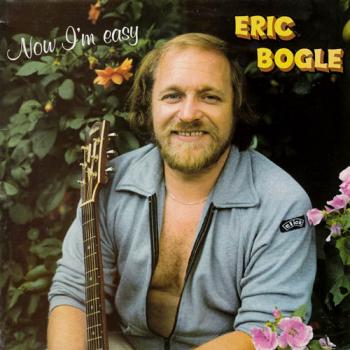
[1980]
Parole e musica di Eric Bogle
Nell’album “Now I'm Easy”
Wogs è un termine spregiativo rivolto a chi non ha la pelle bianca ma, evidentemente, il protagonista di questo brano lo utilizza per tutti gli immigrati di qualunque colore e provenienza, europei compresi, dimenticando bellamente di non essere certo pure lui un aborigeno (sporchi wogs pure essi, peraltro...)!
Parole e musica di Eric Bogle
Nell’album “Now I'm Easy”
Wogs è un termine spregiativo rivolto a chi non ha la pelle bianca ma, evidentemente, il protagonista di questo brano lo utilizza per tutti gli immigrati di qualunque colore e provenienza, europei compresi, dimenticando bellamente di non essere certo pure lui un aborigeno (sporchi wogs pure essi, peraltro...)!
I'm a dicky-dye Australian guy and me name is Billy Schmidt.
(Continues)
(Continues)
Contributed by Bernart Bartleby 2018/5/18 - 11:53
Song Itineraries:
The War of Labour: Emigration, Immigration, Exploitation, Slavery
Ibrahim
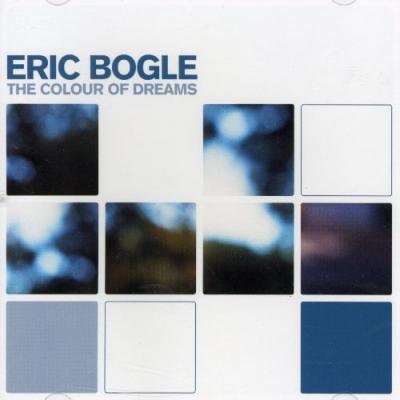
[2002]
Parole e musica di Eric Bogle
Nell’album “The Colour Of Dreams”
Parole e musica di Eric Bogle
Nell’album “The Colour Of Dreams”
Hey Ibrahim, tell me what do you think of Australia?
(Continues)
(Continues)
Contributed by Bernart Bartleby 2018/5/18 - 11:22
Song Itineraries:
The War of Labour: Emigration, Immigration, Exploitation, Slavery
Never Again – Remember

[1993]
Parole e musica di Eric Bogle
Nell’album “Mirrors”
Testo trovato su Mudcat Café
“I wrote 'Never Again' after a trip to the WWII concentration camp called Sachsenhausen, situated just outside Berlin (or East Berlin as it was then). Chilling little place. It seems the political and social obscenity that created Sachsenhausen, and many other death camps, is on the rise again. Could it all happen again? Of course it could. It already is.” (Eric Bogle)
Parole e musica di Eric Bogle
Nell’album “Mirrors”
Testo trovato su Mudcat Café
“I wrote 'Never Again' after a trip to the WWII concentration camp called Sachsenhausen, situated just outside Berlin (or East Berlin as it was then). Chilling little place. It seems the political and social obscenity that created Sachsenhausen, and many other death camps, is on the rise again. Could it all happen again? Of course it could. It already is.” (Eric Bogle)
I have been to hell today.
(Continues)
(Continues)
Contributed by Bernart Bartleby 2018/5/17 - 16:53
Song Itineraries:
Extermination camps, From World Jails
The Ballad of Bill White
[1968]
Parole e musica di Glen Tomasetti (1929-2003)
Il lato A di un 45” di questa oggi misconosciuta cantautrice australiana che negli anni 60 fu - prima ancora di Eric Bogle - la voce più importante contro il coinvolgimento dell’Australia nella guerra in Vietnam.
Testo trascritto da Raymond Crooke e contribuito – insieme alla cover - sul suo bel sito Raymond’s Folk Song Page. Anche l’introduzione che segue è di Raymond Crooke, cui il disco della Tomasetti fu regalato da uno zio quando era ragazzo.
Finora era stato possibile reperire in Rete solo il testo del brano sul lato B, The Army’s Appeal to Mothers
This song was released on an EP during the Vietnam war. The B side featured two songs, the better of which is the hard-hitting "The Army’s Appeal to Mothers", which was published in Barbara Dane's and Irwin Silber's "The Vietnam Songbook" (1969). However, this song, about a teacher... (Continues)
Parole e musica di Glen Tomasetti (1929-2003)
Il lato A di un 45” di questa oggi misconosciuta cantautrice australiana che negli anni 60 fu - prima ancora di Eric Bogle - la voce più importante contro il coinvolgimento dell’Australia nella guerra in Vietnam.
Testo trascritto da Raymond Crooke e contribuito – insieme alla cover - sul suo bel sito Raymond’s Folk Song Page. Anche l’introduzione che segue è di Raymond Crooke, cui il disco della Tomasetti fu regalato da uno zio quando era ragazzo.
Finora era stato possibile reperire in Rete solo il testo del brano sul lato B, The Army’s Appeal to Mothers
This song was released on an EP during the Vietnam war. The B side featured two songs, the better of which is the hard-hitting "The Army’s Appeal to Mothers", which was published in Barbara Dane's and Irwin Silber's "The Vietnam Songbook" (1969). However, this song, about a teacher... (Continues)
In New South Wales there lives a man, a teacher young and true,
(Continues)
(Continues)
Contributed by Bernart Bartleby 2016/2/16 - 15:05
Vernichtungsbefehl
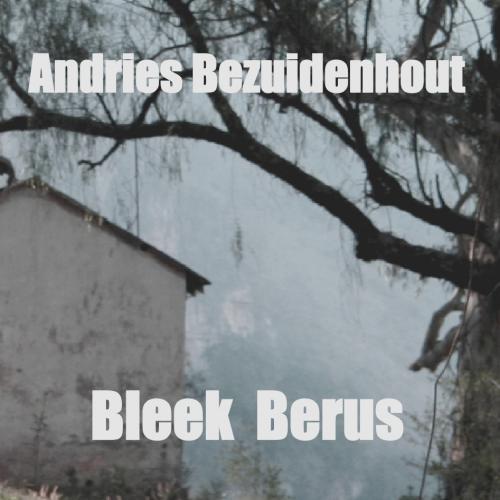
5/6 novembre 2014
Due parole del traduttore. “Vernichtungsbefehl”, tedesco per “ordine di annientamento” o “di distruzione”, deve essere situata non solo nel passato ma anche nel presente. Dalla traduzione, infatti, è saltata fuori una canzone che, in realtà, delle storie di cento anni fa e del genocidio degli Herero-Namaqua parla non molto; o meglio, tutto sembra aleggiare sul quel che l'autore dice nel testo di questo lunghissimo brano (nell'originale, purtroppo non reperibile da YouTube, dura dodici minuti e rotti). La canzone prende spunto da un fatto reale: le dune del deserto del Kalahari continuano a restituire gli scheletri degli Herero sterminati dai colonizzatori tedeschi e dalla Schutztruppe di Von Trotha dopo più di cento anni (i fatti avvennero nel 1904). Di fronte a tale fatto, con un procedimento un po' alla Eric Bogle, l'autore si rivolge a un ipotetico soldato della Schutztruppe,... (Continues)
Due parole del traduttore. “Vernichtungsbefehl”, tedesco per “ordine di annientamento” o “di distruzione”, deve essere situata non solo nel passato ma anche nel presente. Dalla traduzione, infatti, è saltata fuori una canzone che, in realtà, delle storie di cento anni fa e del genocidio degli Herero-Namaqua parla non molto; o meglio, tutto sembra aleggiare sul quel che l'autore dice nel testo di questo lunghissimo brano (nell'originale, purtroppo non reperibile da YouTube, dura dodici minuti e rotti). La canzone prende spunto da un fatto reale: le dune del deserto del Kalahari continuano a restituire gli scheletri degli Herero sterminati dai colonizzatori tedeschi e dalla Schutztruppe di Von Trotha dopo più di cento anni (i fatti avvennero nel 1904). Di fronte a tale fatto, con un procedimento un po' alla Eric Bogle, l'autore si rivolge a un ipotetico soldato della Schutztruppe,... (Continues)
ORDINE DI ANNIENTAMENTO
(Continues)
(Continues)
2014/11/5 - 17:52
What Kind of Man?
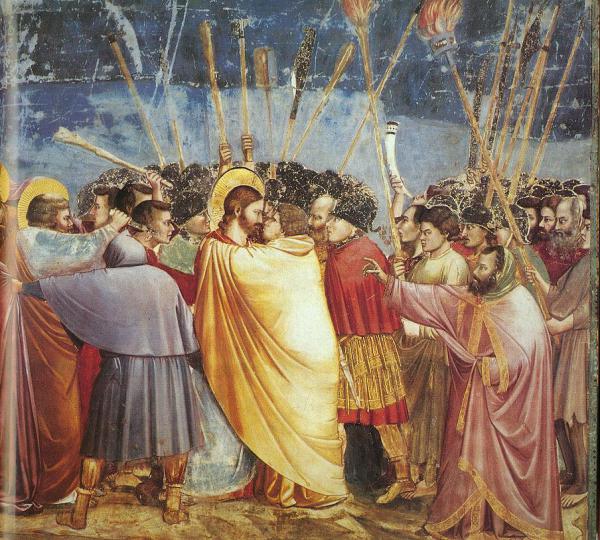
[1991]
Parole e musica di Eric Bogle
Nel disco intitolato “Voices In The Wilderness”
“Dal Getsemani fino ad Auschwitz, l'uomo con il fucile si è frapposto tra noi e ciò che avremmo potuto essere… Riuscirà ancora una volta a trascinarci di nuovo verso la barbarie? Se lo lasciamo fare, che razza di uomini siamo?”
Parole e musica di Eric Bogle
Nel disco intitolato “Voices In The Wilderness”
“Dal Getsemani fino ad Auschwitz, l'uomo con il fucile si è frapposto tra noi e ciò che avremmo potuto essere… Riuscirà ancora una volta a trascinarci di nuovo verso la barbarie? Se lo lasciamo fare, che razza di uomini siamo?”
What kind of man is he, and which cause did he use
(Continues)
(Continues)
Contributed by Bernart Bartleby 2014/6/19 - 10:03
Çanakkale türküsü
Anonymous
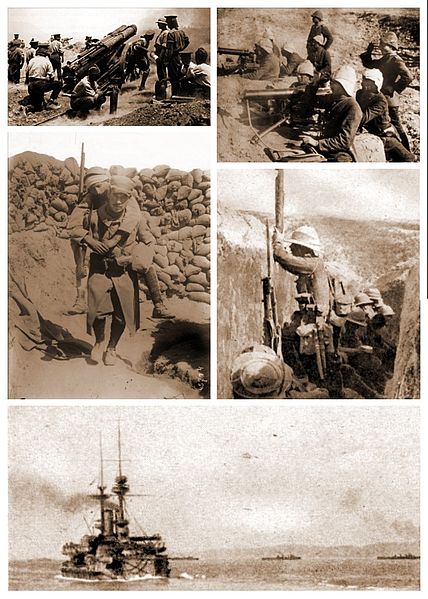
[1915]
Canzone popolare
Rifacimento attribuito al cantastorie Ihsan Ozanoğlu di Kastamonu
Arrangiamento di Muzaffer Sarısözen
Turkish folksong
Probably reshaped by the bard Ihsan Ozanoğlu of Kastamonu
Arranged by Muzaffer Sarısözen
Siamo arrivati al famoso "centenario della Grande Guerra", quella che avrebbe dovuto concludere tutte le guerre; ed è un centenario che, pur ovviamente toccandoci, sarà bene affrontare via via a modo nostro. Ad esempio continuando imperterriti a non affrontare mai gli avvenimenti da una parte sola. Prendiamo ad esempio la Campagna dei Dardanelli del 1915, un autentico macello che ha, fra le altre cose, rappresentanto il "battesimo del fuoco" di paesi lontanissimi come l'Australia e la Nuova Zelanda, che si trovarono a mandare a morire la loro giovane generazione per prendere uno stretto di collegamento col Mar Nero. È la campagna dei Dardanelli, o di Gallipoli;... (Continues)
Canzone popolare
Rifacimento attribuito al cantastorie Ihsan Ozanoğlu di Kastamonu
Arrangiamento di Muzaffer Sarısözen
Turkish folksong
Probably reshaped by the bard Ihsan Ozanoğlu of Kastamonu
Arranged by Muzaffer Sarısözen
Siamo arrivati al famoso "centenario della Grande Guerra", quella che avrebbe dovuto concludere tutte le guerre; ed è un centenario che, pur ovviamente toccandoci, sarà bene affrontare via via a modo nostro. Ad esempio continuando imperterriti a non affrontare mai gli avvenimenti da una parte sola. Prendiamo ad esempio la Campagna dei Dardanelli del 1915, un autentico macello che ha, fra le altre cose, rappresentanto il "battesimo del fuoco" di paesi lontanissimi come l'Australia e la Nuova Zelanda, che si trovarono a mandare a morire la loro giovane generazione per prendere uno stretto di collegamento col Mar Nero. È la campagna dei Dardanelli, o di Gallipoli;... (Continues)
Çanakkale içinde aynalı çarşı
(Continues)
(Continues)
Contributed by Riccardo Venturi 2014/3/15 - 11:13
Song Itineraries:
World War I (1914-1918)
The Army’s Appeal to Mothers
[1968]
Il lato B di un 45” di questa oggi misconosciuta cantautrice australiana che negli anni 60 fu - prima ancora di Eric Bogle - la voce più importante contro il coinvolgimento dell’Australia nella guerra in Vietnam.
Sul lato A un’altra canzone dedicata a William "Bill" White, un giovane maestro che nel 1966 divenne in primo obiettore di coscienza australiano, rifiutandosi di partire per il sud-est asiatico. White fu rimosso dall’insegnamento e gli fu ordinato di consegnarsi presso una base militare; lui disse che si rifiutava e che avrebbe aspettato l’arresto nella propria casa; le autorità, in grave imbarazzo (anche perché un gran numero di manifestanti e di giornalisti si erano subito assiepati intorno all’abitazione dell’obiettore), tergiversarono per qualche giorno ma poi mandarono i loro mastini a catturarlo…
Questa la dichiarazione di obiezione di coscienza di... (Continues)
Il lato B di un 45” di questa oggi misconosciuta cantautrice australiana che negli anni 60 fu - prima ancora di Eric Bogle - la voce più importante contro il coinvolgimento dell’Australia nella guerra in Vietnam.
Sul lato A un’altra canzone dedicata a William "Bill" White, un giovane maestro che nel 1966 divenne in primo obiettore di coscienza australiano, rifiutandosi di partire per il sud-est asiatico. White fu rimosso dall’insegnamento e gli fu ordinato di consegnarsi presso una base militare; lui disse che si rifiutava e che avrebbe aspettato l’arresto nella propria casa; le autorità, in grave imbarazzo (anche perché un gran numero di manifestanti e di giornalisti si erano subito assiepati intorno all’abitazione dell’obiettore), tergiversarono per qualche giorno ma poi mandarono i loro mastini a catturarlo…
Questa la dichiarazione di obiezione di coscienza di... (Continues)
Please don’t bring him up to be sensitive.
(Continues)
(Continues)
Contributed by Bartleby 2012/1/2 - 13:32
No Use For Him
[1976]
Album “Live in Person” (Germany tour)
“After working for British Railways for nearly thirty years, my father was made redundant during a big economy drive to make the railways profitable [the Beeching Cuts, when more than 2,000 local railway stations were closed down]. To show their appreciation for all his years of service they allowed him to keep his railway uniform, which consisted of a jacket, cap, trousers, waistcoat and overcoat. They also gave him a choice of redundancy payment of seven hundred pounds in his hand or a pension of about nine shillings a week until death. He chose the lump sum, which was just as well because he was out of work for two years, which to a proud man like him was almost unbearable. He even refused unemployment pay, said he'd rather starve, which he nearly did.”
(Eric Bogle, february 1975)
Album “Live in Person” (Germany tour)
“After working for British Railways for nearly thirty years, my father was made redundant during a big economy drive to make the railways profitable [the Beeching Cuts, when more than 2,000 local railway stations were closed down]. To show their appreciation for all his years of service they allowed him to keep his railway uniform, which consisted of a jacket, cap, trousers, waistcoat and overcoat. They also gave him a choice of redundancy payment of seven hundred pounds in his hand or a pension of about nine shillings a week until death. He chose the lump sum, which was just as well because he was out of work for two years, which to a proud man like him was almost unbearable. He even refused unemployment pay, said he'd rather starve, which he nearly did.”
(Eric Bogle, february 1975)
My father was a big strong man, he worked hard all his life
(Continues)
(Continues)
Contributed by Alessandro 2010/4/21 - 11:08
The Gift Of Years
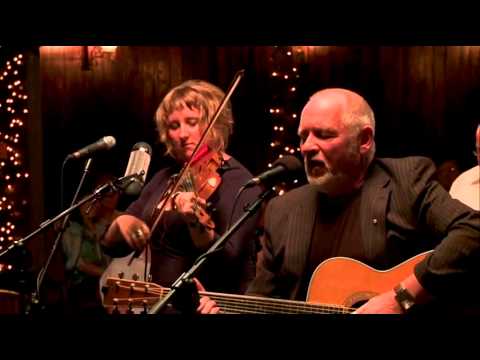
[1995]
Album "I Wrote This Wee Song"
Album "I Wrote This Wee Song"
Well old friend here I am,
(Continues)
(Continues)
Contributed by Alessandro 2009/9/20 - 17:49
For King And Country
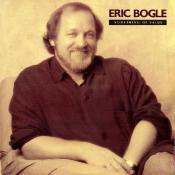
[1981]
Album "Down Under"
Un brano misconosciuto ma che credo costituisca la chiusura di una sorta di trittico dedicato alla prima guerra mondiale, quello iniziato qualche anno prima da Bogle con The Band Played Waltzing Matilda e The Green Fields Of France (No Man's Land).
Album "Down Under"
Un brano misconosciuto ma che credo costituisca la chiusura di una sorta di trittico dedicato alla prima guerra mondiale, quello iniziato qualche anno prima da Bogle con The Band Played Waltzing Matilda e The Green Fields Of France (No Man's Land).
For King and for Country,
(Continues)
(Continues)
Contributed by Alessandro 2009/9/19 - 21:46
Hard Hard Times
[1990]
Album "Eric Bogle Songbook 1"
Una canzone sulla condizione degli aborigeni in Australia.
Essi chiamano il loro paese "Terra del tempo dei sogni", la terra che è stata loro consegnata al tempo della Creazione...
Un sogno che con l'arrivo dei bianchi si è trasformato in un incubo...
Album "Eric Bogle Songbook 1"
Una canzone sulla condizione degli aborigeni in Australia.
Essi chiamano il loro paese "Terra del tempo dei sogni", la terra che è stata loro consegnata al tempo della Creazione...
Un sogno che con l'arrivo dei bianchi si è trasformato in un incubo...
It's hard times living in the lucky country
(Continues)
(Continues)
Contributed by Alessandro 2009/9/19 - 16:14
Soldier Soldier
Trovata sul sito dell'autore.
Soldier, Soldier will you fight for me march away with your fife and drum?
(Continues)
(Continues)
Contributed by Alessandro 2008/11/6 - 11:07
How Many More Willie McBrides?

From/da Songs For Change
"Liza Mulholland is based in Inverness. Her song was inspired by the scale of killing in Iraq which made her think about Eric Bogle's anti-war anthem, Green Fields of France/No Man's Land, and 'how, ninety years on from the First World War, we have the same old utter horror and futility of war, with its terrible loss of young life on both sides, supported by the same old lies and platitudes from right-wing politicians.'"
La canzone è ispirata direttamente a The Green Fields Of France (No Man's Land) di Eric Bogle, una delle più famose canzoni contro la guerra di tutti i tempi, e una delle nostre "canzoni fondamentali". Bogle, come l'autrice di questa canzone, è scozzese di nascita (seppure emigrato in Australia da moltissimi anni).
La canzone è ispirata direttamente a The Green Fields Of France (No Man's Land) di Eric Bogle, una delle più famose canzoni contro la guerra di tutti i tempi, e una delle nostre "canzoni fondamentali". Bogle, come l'autrice di questa canzone, è scozzese di nascita (seppure emigrato in Australia da moltissimi anni).
Fathers, fathers, call back your sons
(Continues)
(Continues)
Contributed by Riccardo Venturi 2007/3/12 - 00:13
Waltzing my Timor
"This adaptation of Waltzing Matilda by Eric Bogle was sent to us by Richard Mills. Sadly, the words tell their own story." -Peter Hicks.
Once a jolly Digger
(Continues)
(Continues)
Contributed by Riccardo Venturi 2005/8/4 - 15:05
Vladslo
[1995]
Testo e musica di Willem Vermandere
Woorden en muziek van Willem Vermandere
Album: Mijn Vlaanderland
Per il suo argomento, la canzone può essere considerata come una sorta di "gemella" fiamminga della celeberrima canzone di Eric Bogle, The Green Fields Of France (No Man's Land).
Italiano
English
IL CIMITERO DI VLADSLO E IL FIGLIO DI KÄTHE KOLLWITZ
Presso il villaggio fiammingo di Vladslo, a nord di Ypres (in fiammingo Ieper, la città tristemente nota per aver dato nome all’yprite, il gas paralizzante che proprio là fu utilizzato per la prima volta con effetti devastanti durante una delle più sanguinose battaglie della I guerra mondiale) e vicino alla città di Diksmuide, sorge il principale cimitero di guerra tedesco della cosiddetta “grande guerra”. In una delle poche quercete della zona sono allineate centinaia di pietre quadrate nere con i nomi dei soldati là sepolti.... (Continues)
Testo e musica di Willem Vermandere
Woorden en muziek van Willem Vermandere
Album: Mijn Vlaanderland
Per il suo argomento, la canzone può essere considerata come una sorta di "gemella" fiamminga della celeberrima canzone di Eric Bogle, The Green Fields Of France (No Man's Land).
Italiano
English
IL CIMITERO DI VLADSLO E IL FIGLIO DI KÄTHE KOLLWITZ
Presso il villaggio fiammingo di Vladslo, a nord di Ypres (in fiammingo Ieper, la città tristemente nota per aver dato nome all’yprite, il gas paralizzante che proprio là fu utilizzato per la prima volta con effetti devastanti durante una delle più sanguinose battaglie della I guerra mondiale) e vicino alla città di Diksmuide, sorge il principale cimitero di guerra tedesco della cosiddetta “grande guerra”. In una delle poche quercete della zona sono allineate centinaia di pietre quadrate nere con i nomi dei soldati là sepolti.... (Continues)
In ‘t Praetbos buiten Vladslo,
(Continues)
(Continues)
Contributed by Riccardo Venturi 2005/6/17 - 22:37
Song Itineraries:
World War I (1914-1918)
×
![]()

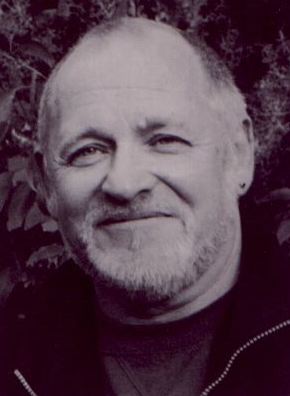
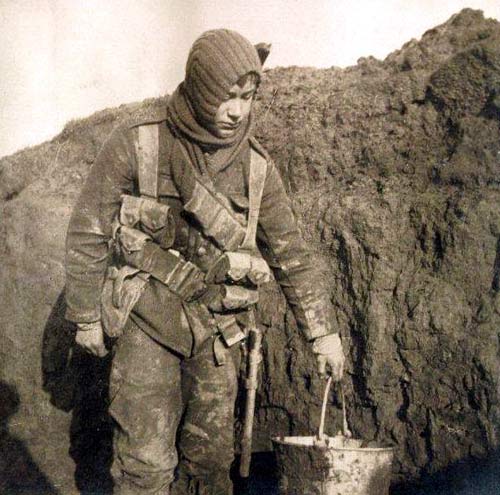

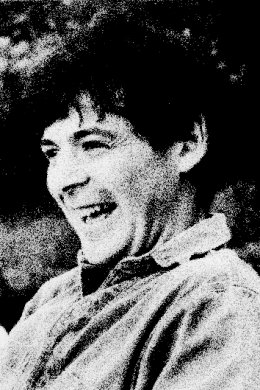
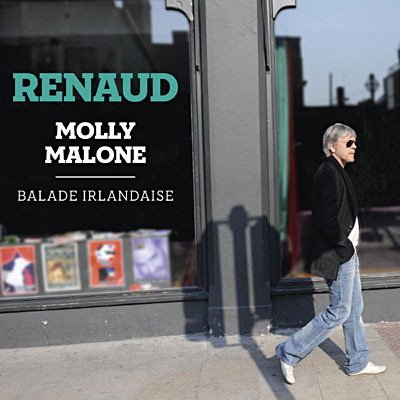


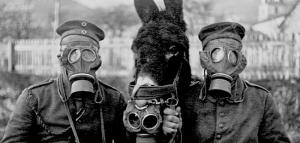
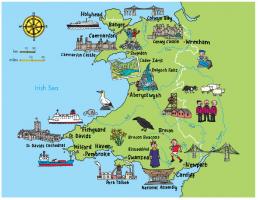
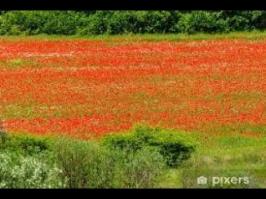
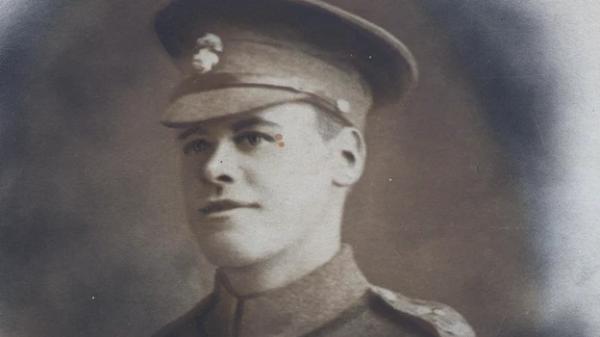
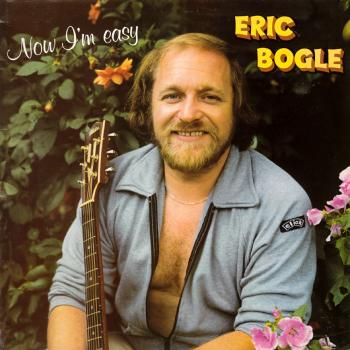

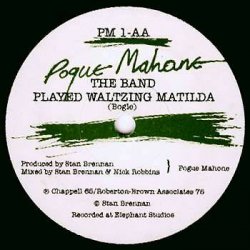
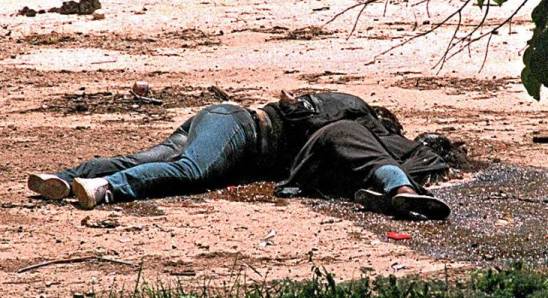
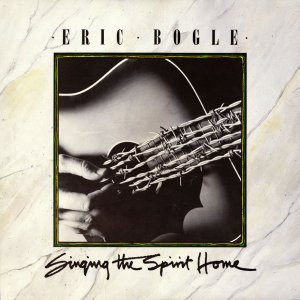
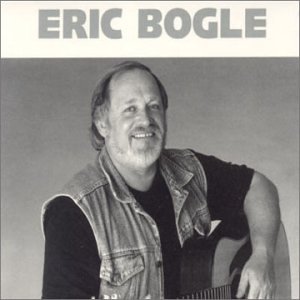
Testo di Eric Bogle
Musica ripresa dalla ballata popolare scozzese
Waly, Waly, but Love be Bonny
Lyrics and Music by Eric Bogle
Tune: Waly, Waly, but Love be Bonny
(Traditional Scottish folksong)
Paroles: Eric Bogle
Mélodie: Waly, Waly, but Love be Bonny
(Chanson traditionnelle écossaise)
Sanat: Eric Bogle
Sävel: Waly, Waly, but Love be Bonny
(Perinteinen skotlantilainen kansanlaulu)
Una straordinaria canzone (forse una delle più belle canzoni contro la guerra mai scritte). Per il suo argomento, può essere considerata "gemella" di un'altra stupenda canzone, Vladslo di Willem Vermandere.
Dopo aver visitato i cimiteri di guerra francesi nei primi anni '70, Eric Bogle trasformò una canzone popolare scozzese in un drammatico colloquio fittizio (tecnica compositiva che usa assai di frequente) con il soldato semplice William McBride. Forse Bogle fu ispirato da una pietra... (Continues)